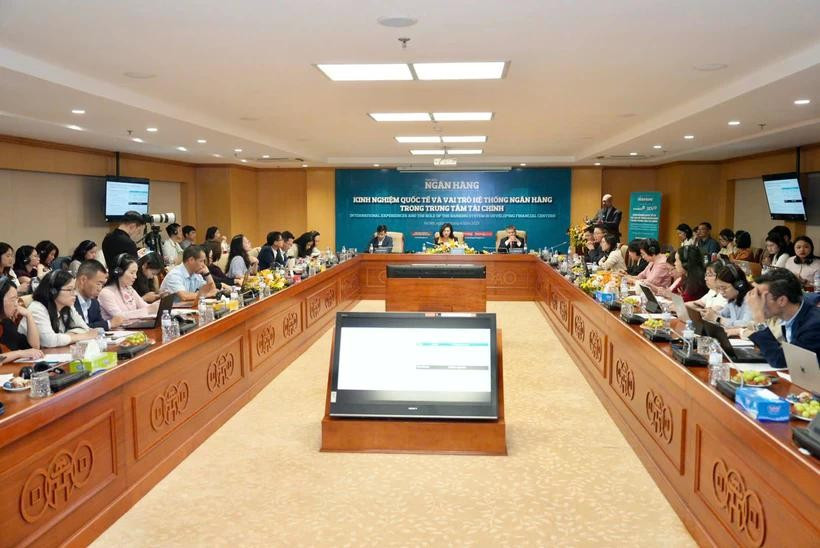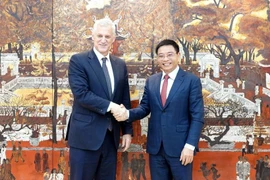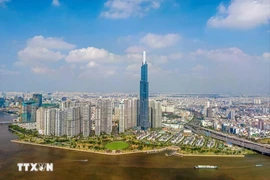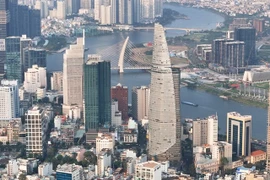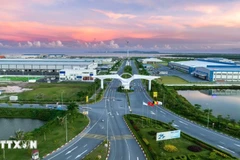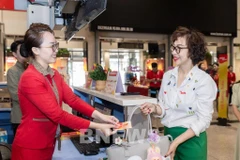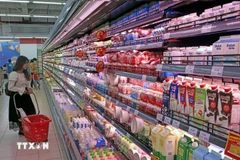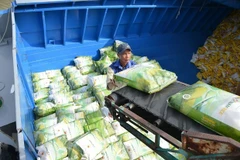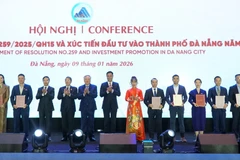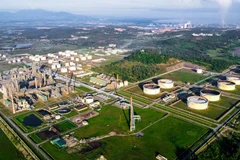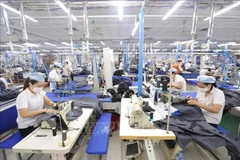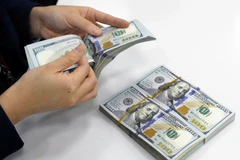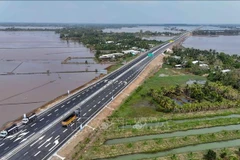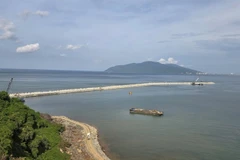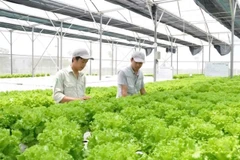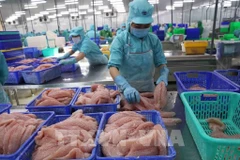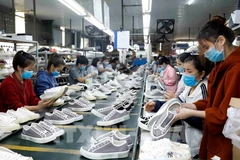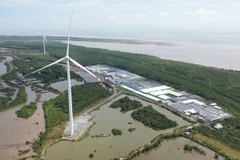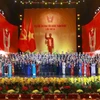Hanoi (VNA) - Not merely a mega financial project, a successfully established international financial centre (IFC) in Vietnam could become a launchpad for attracting global capital flows, triggering breakthroughs in the financial market and enhancing the nation’s economic standing. However, if Vietnam lags behind, it risks being left out of this race.
Richard D. McClellan, former Country Director of the Tony Blair Institute in Vietnam, made the remark at a conference on international experiences and the role of the banking system in developing such centres held on April 16.
Experts at the seminar asserted that establishing an international financial centre is a key policy aimed at institutional reform, unlocking resources, enhancing competitiveness, and integrating Vietnam into the global financial system.
According to McClellan, establishing an international financial centre is not a matter of if but when, and it is a necessity. However, capital flows will not automatically pour in just because Vietnam announces its intention. Attracting investors requires concerted efforts on multiple fronts.
The role of an IFC in Vietnam is to connect the country to global financial markets, attract international financial institutions and capital flows. It will also bolster mobilisation and efficient allocation of resources, drive institutional breakthroughs, and improve national competitiveness. A financial centre typically plays a pivotal role in providing international financial services, including banking, insurance, and securities.
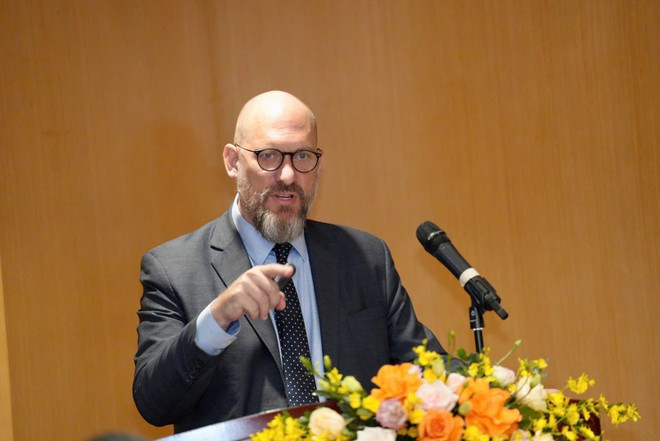
Institute of Strategy and Economic-Financial Policy Luu Anh Nguyet emphasised the need for special preferential policies to attract investment into an IFC in Vietnam. She noted that there are already several IFCs geographically close to Vietnam, such as Singapore, Hong Kong, and Shanghai (China). To truly leverage the benefits an IFC promises, Vietnam must implement specialised regulatory frameworks and foster connectivity between domestic and international financial centres.
It is envisioned that Ho Chi Minh City will be developed into a global IFC, while Da Nang will play a regional role. These two levels of development are differentiated to avoid direct competition between the two centres within the country.
Nguyen Duc Long, Director of the Credit Institutions Supervision Department under the State Bank of Vietnam, noted that while there are various approaches and conditions for establishing IFCs across countries, Vietnam faces particular challenges due to differences not only in population size and geography, but also in its legal framework.
The country has stringent regulations to ensure macroeconomic stability. For instance, capital transaction regulations and capital flow liberalisation are major prerequisites for establishing an IFC. Currently, Vietnam maintains tight controls in this area, Long stressed.

Long also noted that Vietnam’s international trade commitments still require certain market protection measures. In the current domestic context, the establishment of new financial institutions and commercial banks remains highly restricted. Thus, introducing greater incentives for establishing financial institutions poses a considerable policy challenge.
A representative from the Ministry of Finance also acknowledged existing challenges. For instance, while socio-economic infrastructure has contributed positively, it remains inconsistent, traffic congestion persists, and transport modalities are imbalanced. Additionally, the legal framework has yet to meet international standards, particularly in areas such as cross-border transactions and investor protection.
The first step towards establishing an IFC, experts agree, is to develop a flexible and modern institutional framework. Vietnam should aim for global connectivity, promote the development of digital financial zones, and support startups and fintech companies in piloting new services. This includes applying AI, blockchain, and big data in transactions, data management, and financial security. Furthermore, Nguyet proposed offering corporate and personal income tax exemptions or reductions for entities and individuals operating within the IFC. /.
